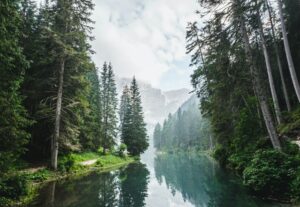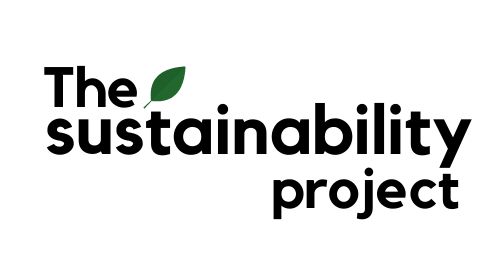When the Covid-19 pandemic hit us, oh boy did it hit us hard.
Our mobility was reduced drastically with movement restrictions of the Circuit Breaker. Covid-19 has created concerns of our health, and we realised the importance of self-care. All these led many to make lifestyle changes, which resulted in an emerging trend – hiking.
According to NParks, Singapore experienced a significant hiking boom since the end of the circuit breaker on 1st June 2020. There are more visitors to our gardens, parks, and nature reserves, as well as an increase in the membership count of the Singapore Hikers Facebook group. Currently, it holds 76.9k members, an increase from 2k in 2018.
Singapore is also increasing the number of available hiking trails, with NParks announcing that they would be curating four more island-wide routes. This includes a 62km route from Changi to Tuas that will be Singapore’s longest cross-island trail.
I feel that it is a blessing for this activity to be a trend, considering the benefits hiking provides to our body, mind, and soul. However, hiking can have harmful impacts on our environment if not done with precaution. If you are an avid hiker, have you wondered if you are doing so sustainably?
Benefits Of Hiking
Firstly, hiking challenges your physical fitness. With varying steepness of the trail, hiking is a good cardio workout that keeps you healthy. According to WebMD, hiking helps to provide the following health benefits:
- Lowers your risk of heart disease
- Improves your blood pressure and blood sugar levels
- Boosts bone density, since walking is a weight-bearing exercise
- Strengthens your core
- Improves balance
- Helps with weight control
Hiking is also a good way to de-stress. Surrounding yourself in nature can improve your mood and mental health. According to a study done by researchers at Stanford University, spending time in green spaces significantly reduces stress, manages anxiety, and can lead to a lower risk of depression. Taking in the sights, smells, and feelings of nature is a good way for you to reduce stress levels.
Additionally, hiking trails helps to raise environmental awareness by exposing the public to natural environments. Nature is always around us, yet we barely notice it. Hiking allows us to experience nature firsthand when we are surrounded by plants, trees, and wildlife.
The experience may even garner the appreciation and respect of hikers, which helps to preserve the natural habitat of native animals and plants. With rising awareness, hiking trails can even encourage people to walk and hike more, leading to the reduction of fossil fuel consumption of transportation. This in turn, triggers a passive involvement in the environmental cause.

Ways To Hike Sustainably & Respectfully
Did you know that various actions you do while hiking can affect the environment? Here are some of them and measures you can take to help protect our environment!
Stay On The Hiking Trail When You Hike
You may notice that most hiking trails in Singapore have pathways built just for us to stay on track. It is important to do so as going off-trail can damage the flora and fauna growing outside the pathways.
Another measure we can take is to avoid stepping onto muddy trails as it will create a deeper depression or erode the earth. If possible, walk on the drier areas of the hiking trail. If you see canals, streams or rivers, avoid walking through them as it would affect the habitat and organisms living in these areas.
According to The Straits Times, greater soil erosion, compacted leaf litter and lack of undergrowth are telling signs that off-trail routes are used regularly. These impacts are seen on illicit trails in Chestnut Nature Park that suggest that people are trudging through the vegetation to get through. To mitigate this issue, NParks has taken action to impose a fine of up to $2,000 to those caught straying off designated trails in nature reserves.
So, be mindful and remember to stay on the trails as they were made for a reason!

Respect The Wildlife And Their Environment
If you were at home, you wouldn’t want someone to intrude, right? This is the same with animals when they are in their natural habitat! It is important to respect the wildlife and the environment they are living in.
We can do so by avoiding making too much noise or playing loud music while on a hike. It is important to keep our noise levels down to ensure that we do not contribute to noise pollution and startle animals or disrupt their peace. We should all respect the wildlife and keep their environment peaceful and litter-free.
In addition, do not litter at all costs. Litter left lying around degrades very slowly and is highly detrimental to the environment. Your litter might also be regarded as food to the wildlife and we wouldn’t want them to feed on those plastic packaging!
Have a bag ready to store your trash and look out for the nearest dustbins to deposit your trash. We must all be aware of minimising the traces we leave in nature.
According to recent news from Mothership, a large number of people visiting Changi Beach were spotted catching and collecting marine animals, disrupting the latter’s natural habitats with shovels and tongs. Touching wildlife causes unnecessary stress to the creatures and soft-bodied organisms are vulnerable to injuries.
NParks will be stepping up efforts to protect marine creatures by putting up more signages and increasing the frequency of patrols in the area, as well as raising awareness on the detrimental effects of of disrupting marine wildlife.
Please always remember to treat these nature spaces with love and care!
Do Not Attempt To Feed Any Animal While Hiking
Feeding wildlife can do more harm than good. Nutrition is one aspect that could affect animals. Wild animals often rely on available food sources even they do not suit their nutritional needs. They have specialised diets, and can become malnourished or die if fed the wrong foods. They can also get sick when they cannot distinguish food from wrappers or foil.
For example, feeding wild boars and monkeys’ with human food can lead them to venture into urban areas to search for food. It can be dangerous to both animals and humans, due to issues such as traffic accidents and wildlife attacks.
Feeding wildlife goes against the enhanced wildlife act and offenders can be fined up to $5,000. Therefore, it is crucial that animals should always be left on their own.
Be A Responsible Pet Owner
I believe most of us who own dogs like to bring them out for walks. However, in natural environments, they might bark when they see or sense other native animals living in their habitats, disturbing wildlife.
According to NParks, to ensure a safe and enjoyable experience for all, do put your furry friends on a leash and muzzle them if necessary. Most importantly, please take ownership and clean up after your pet. It is important that we clean up our pet’s defecation as they can put people and other pets at risk of getting sick.
Therefore, we should all play our part in being considerate pet owners by maintaining a clean environment wherever we go. Now, you wouldn’t want to step on dog poop on your next hiking trip right?
I hope the tips above have shown how our actions can affect the environment and the steps to take to be a responsible and sustainable hiker. Enjoy your next hiking trip and remember that it is important to respect all nature areas!



This was really amazing and helpful!
Do you know of any sustainable hiking boot brands that are available in Singapore, besides Timberland?